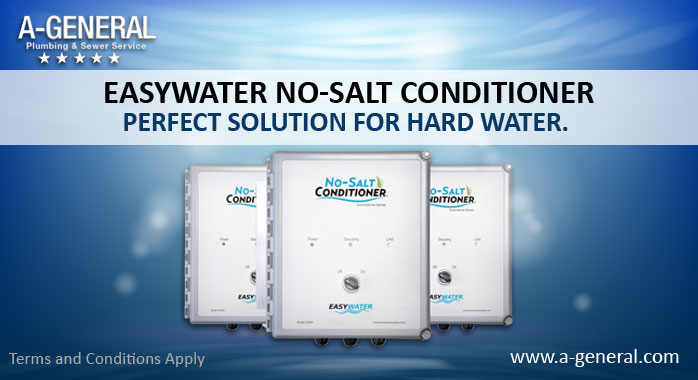NJ is blessed with varied forms of water outlets, be it from the municipality of mother nature! You get water. And you get plenty of it!
The ONLY likely catch (and this isn’t uniform by any stretch of imagination!) is that water in most parts of NJ is hard to various degrees. Though nowhere close to Colorado levels, water sourced directly from nature which has spent time among rocks either in the earth or high up in the mountains generally tend to have higher concentrations of salts, especially calcium and magnesium.
As for what constitutes “hard water”, the description given by the U.S. Department of Interior and the Water Quality Association is that water with less than 60 mg/L of calcium carbonate is considered soft, 61-120 mg/L is moderately hard, 121-180 mg/L is hard, and above 180 mg/L is deemed very hard.
Effects of hard-water:
– In humans, the effects of hard-water are mixed. Consumption (as in drinking and using for cooking), even of very hard water does not affect human health as most of the minerals in high doses are good for health! But problems may arise where it contains unnatural & uncalled for contaminants, an expected occurrence in our lives these days. Bathing with hard-water affects hair and skin quality adversely, even though these are temporary and disappear when water quality improves over time.
– On plant-life: Most plants don’t have much of an issue with hard-water though gardens with a large variety of plants may get affected, more so where hard-water is the only available water in which case one needs to keep a check on the level of minerals and pH level of alkalines.
– On bath & plumbing fittings: Like hardened cholesterol which choke the flow of blood to the heart through the veins, salts in hard-water form layers in most pipes and with time decrease the diameters available for water flow. Over time pressure in the pipes increases which may result in pipe-bursts. Besides, hard-water strains form ugly and ungainly patches on taps and faucets and make the best-kept bath and urinals look downright ugly and unkempt.
– On house-hold conveniences like washing machines, dishwashers and other equipment which use water directly from the tap. Prolonged use of hard-water in house-hold appliances results in salts piling up at critical places which if not checked and removed on time can affect the working of these machines, besides severely shortening their lives.
Given these facts, it thus makes sense to invest in the best salt-free water softener. It may be an investment initially but over time with the lives of home-appliances and fittings going up dramatically, you could consider the costs of such no-salt water softener being recovered many times over!

